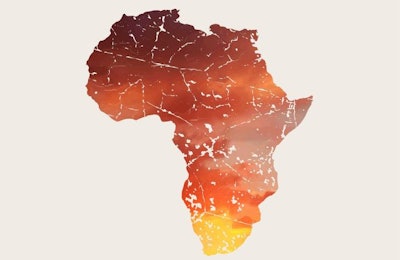
Africa has been a challenging market region for the U.S. agrifood industry to break into, but Dan Whitley, administrator of the U.S. Department of Agriculture (USDA) Foreign Agricultural Service (FAS) says it is imperative that better trade relations be built.
“The time is now for us to build economic bridges and relationships with Africa, so we can take more products in,” Whitley said while speaking at the American Farm Bureau Federation Convention on January 9.
With a rapidly growing population and middle class that is “growing at an unprecedented level,” Africa’s purchasing power is getting stronger, and the U.S. needs do what it can to benefit from that increased spending power, said Whitley.
Competition from Europe
Whitley said the biggest roadblock for the U.S. to export a lot of agricultural goods into Africa is it has stronger relationships with other regional economies. He specifically mentioned Europe.
“I think for some of our competitors, they have had more natural linkage to the continent of Africa. Obviously, a lot of European countries have a connection to a lot of the African countries, so Europe is a primary trading partner with Africa,” said Whitley.
Those relationships with European nations cause some problems with U.S. exports, because the U.S. agrifood industry is not always aligned with Europe on trading conditions such as science, technology and animal welfare. The U.S. and Europe have different beliefs and different approaches. Because of that, African importers have similar beliefs.
“You have a continent of countries that have developed their trading regulations and environment based off of European influence,” said Whitley.
Other competitors
In addition to competition from Europe, the U.S. must also face competition for trade with Africa from Brazil, China and Russia – all three of which are major agricultural competitors. Those three nations, particularly China, are getting their products into Africa in large number.
Progress apparent
While Whitley said the United States must build relationships with African nations, he added that he thinks it presently is happening.
The U.S. has “teed up” a free trade agreement with Kenya. That is important because Kenya is part of an East African customs union. And once more trade with Kenya opens up, other countries in the customs union are apt to follow.
However, that doesn’t mean that challenges don’t remain.
One of challenges is that in order to expect African countries to accept U.S. products, the U.S. will need to accept African products. To do that, the U.S. must make sure its regulatory environment is aligned to receive African products. And if the U.S. wants the African countries to change some of their standards and practices, it too must be willing to budge.
















